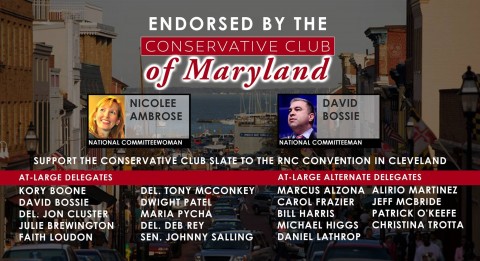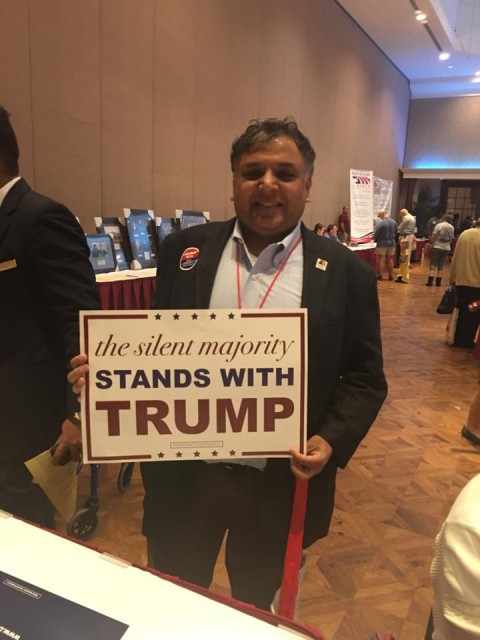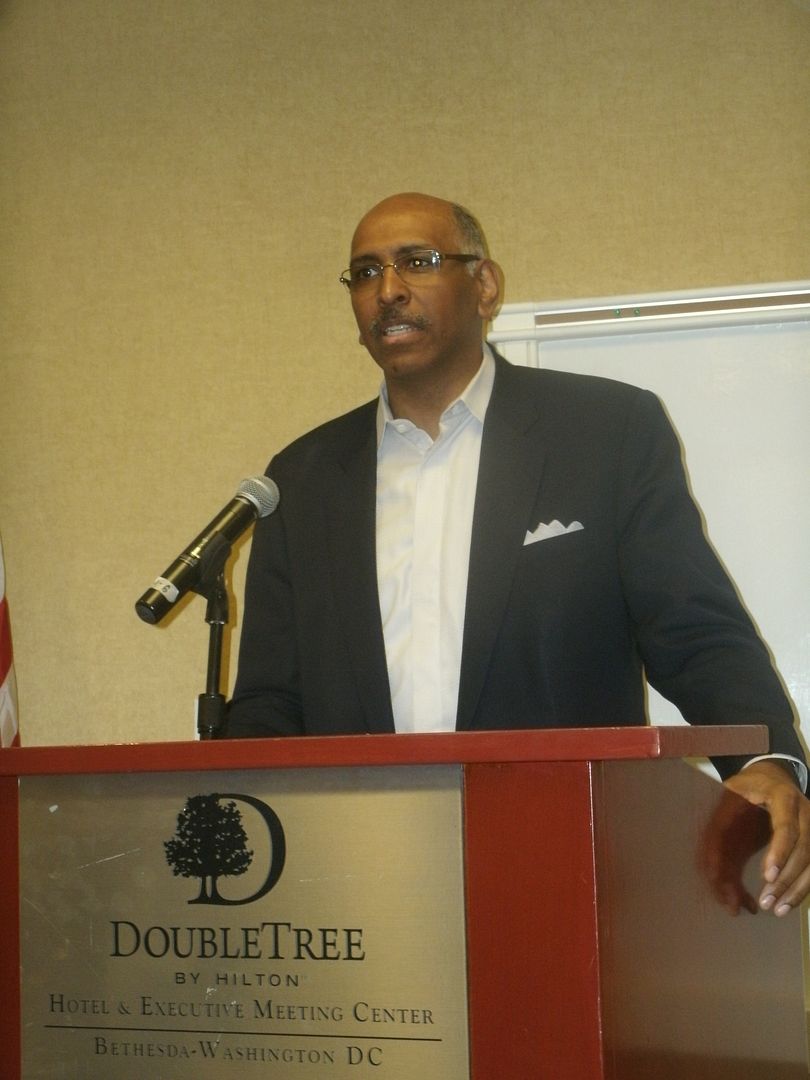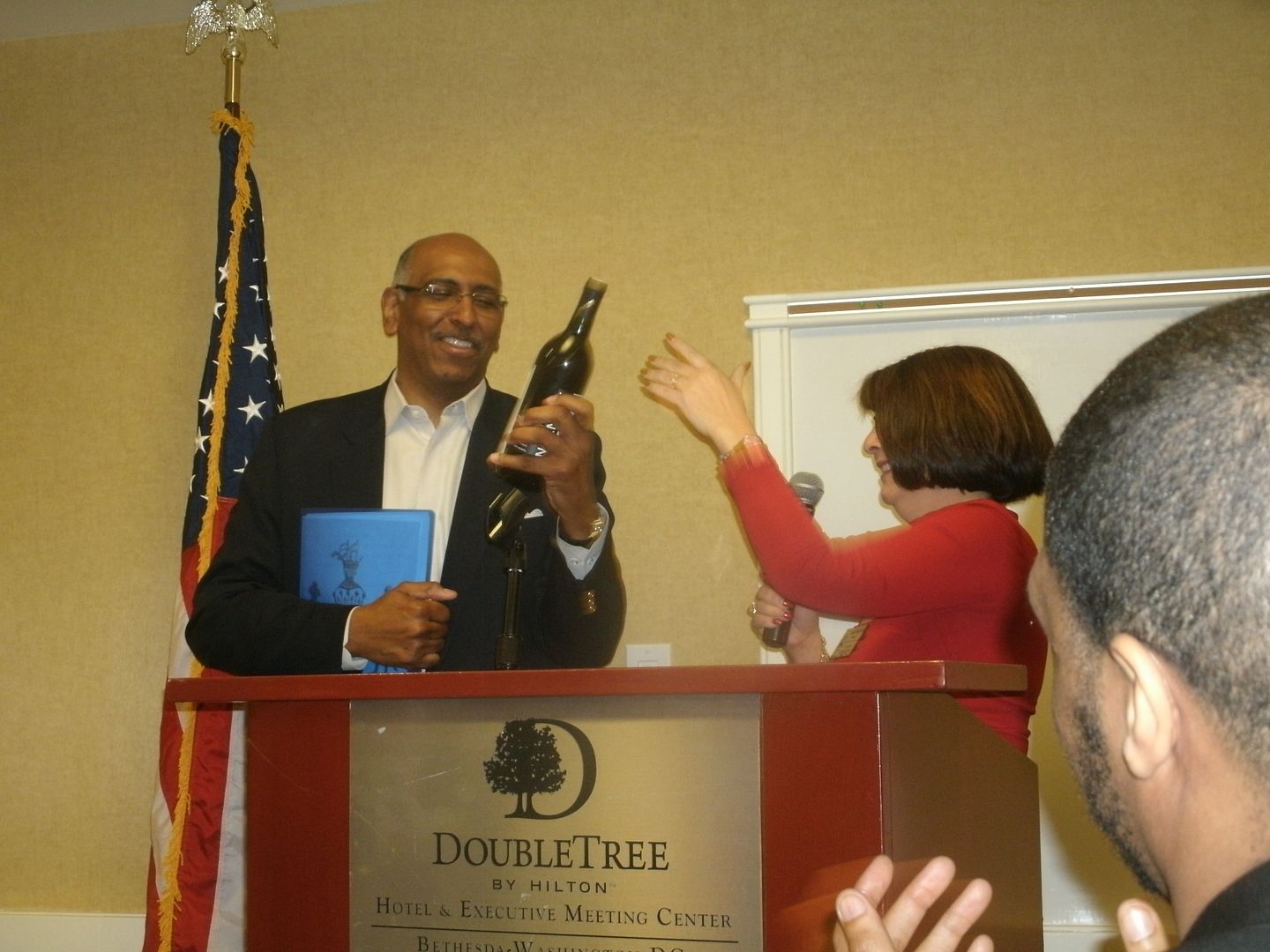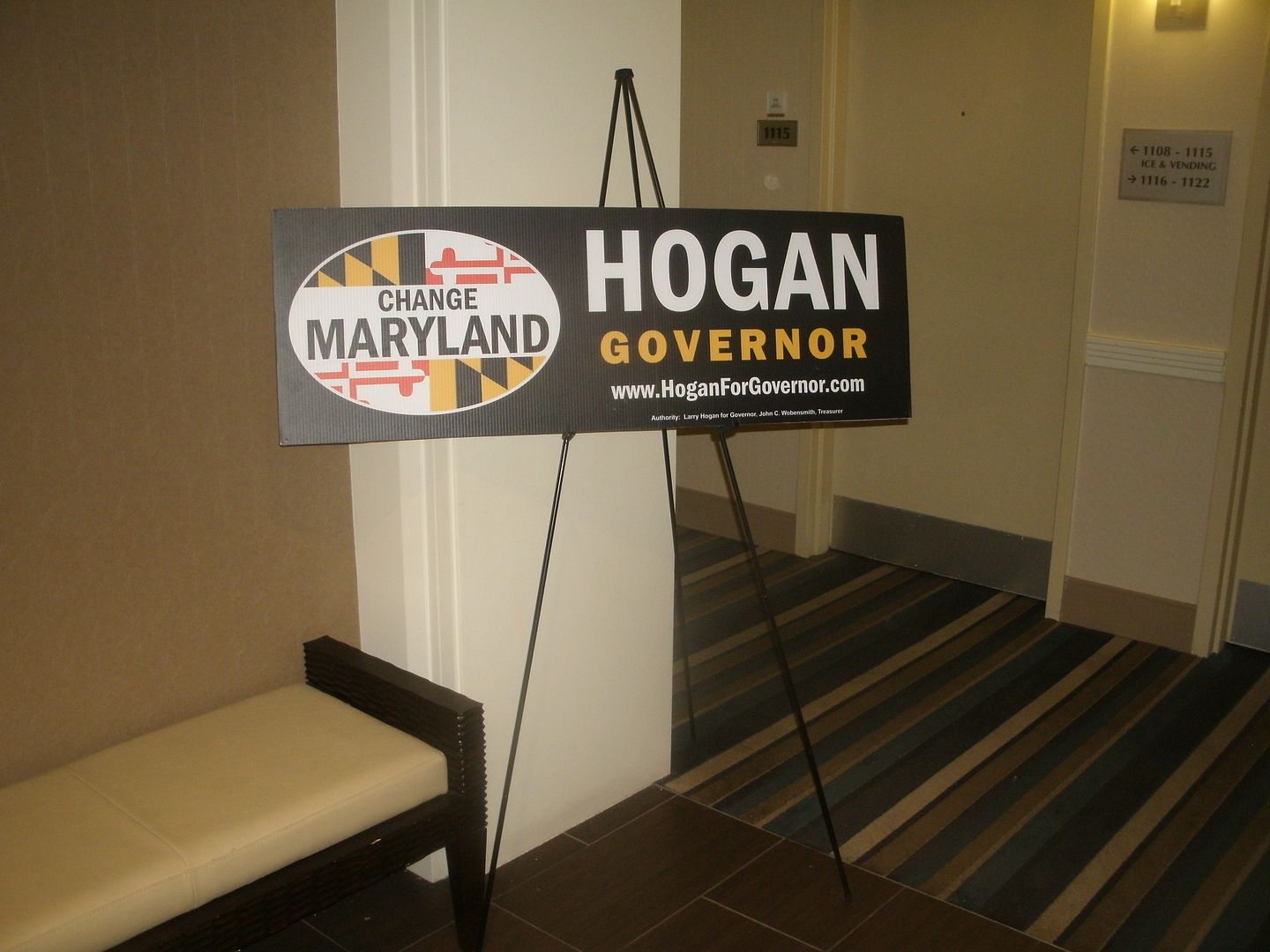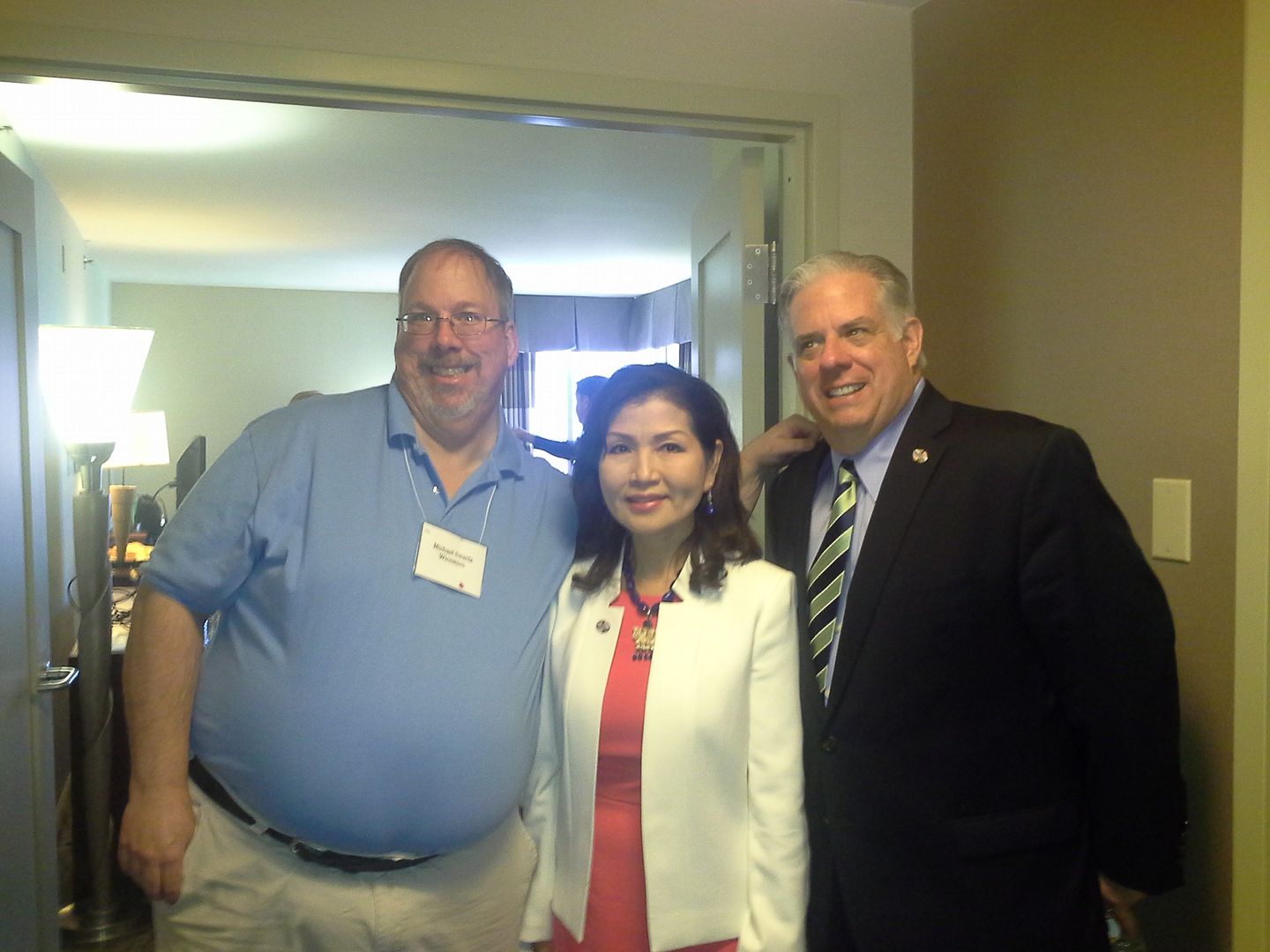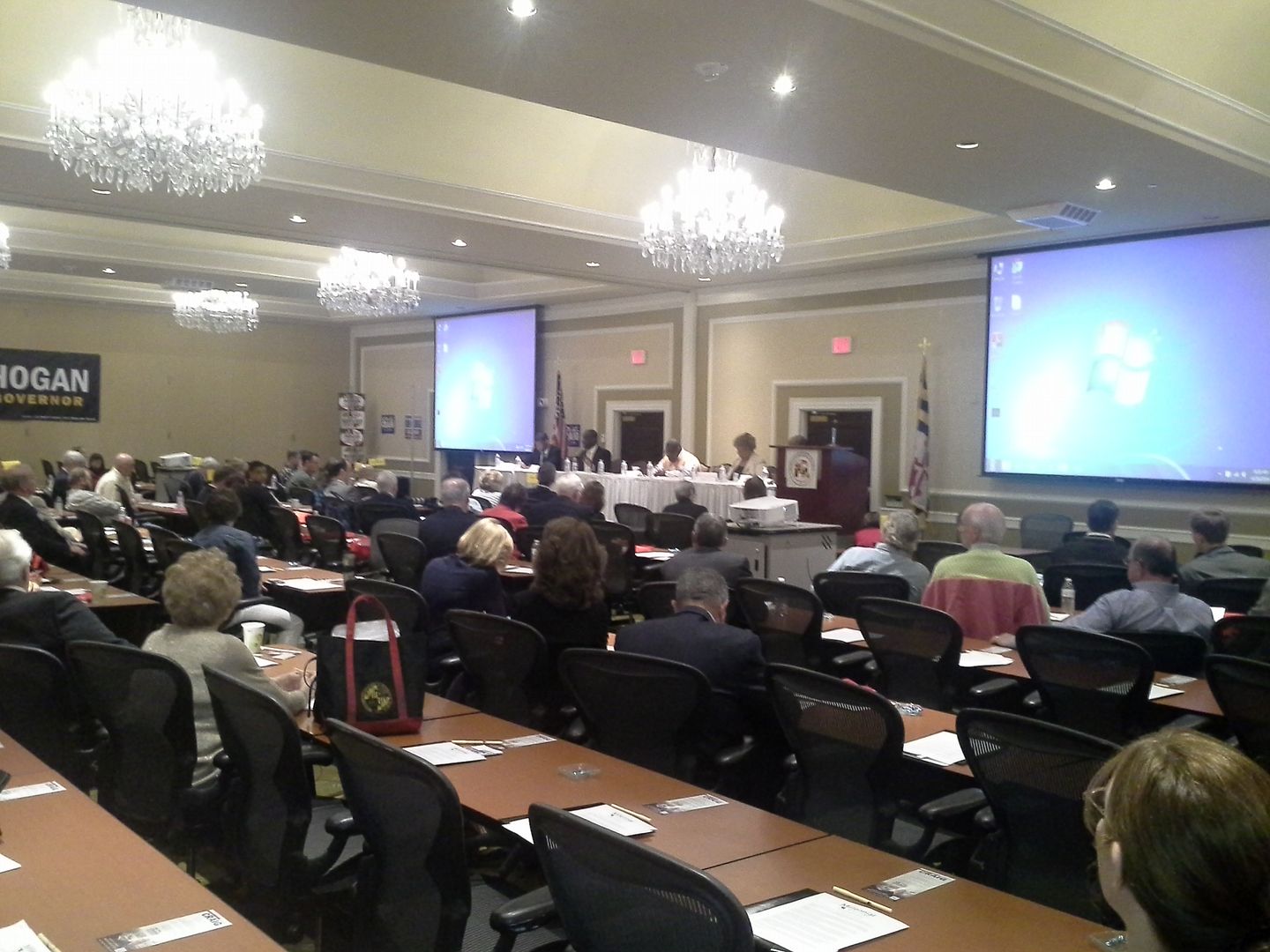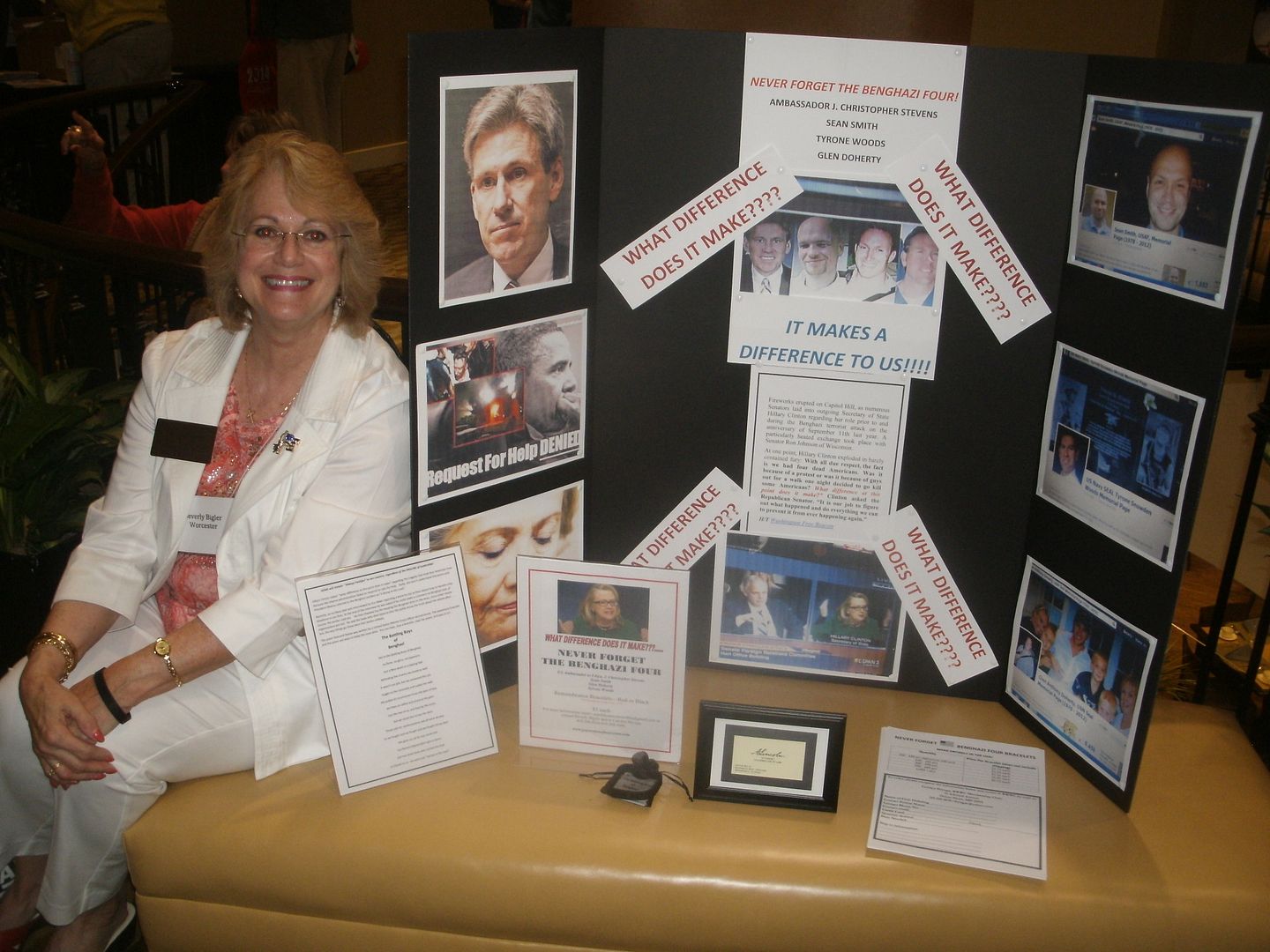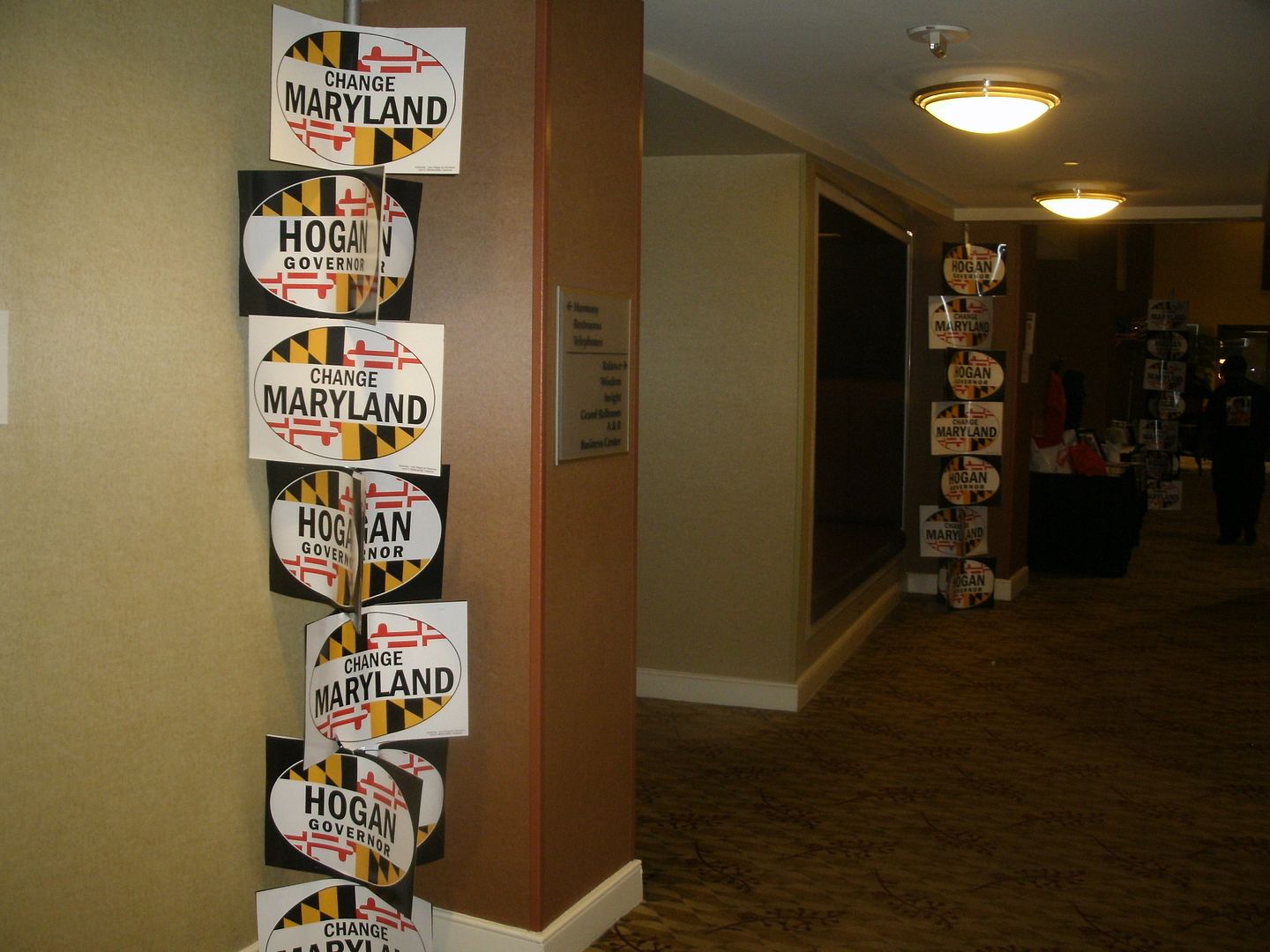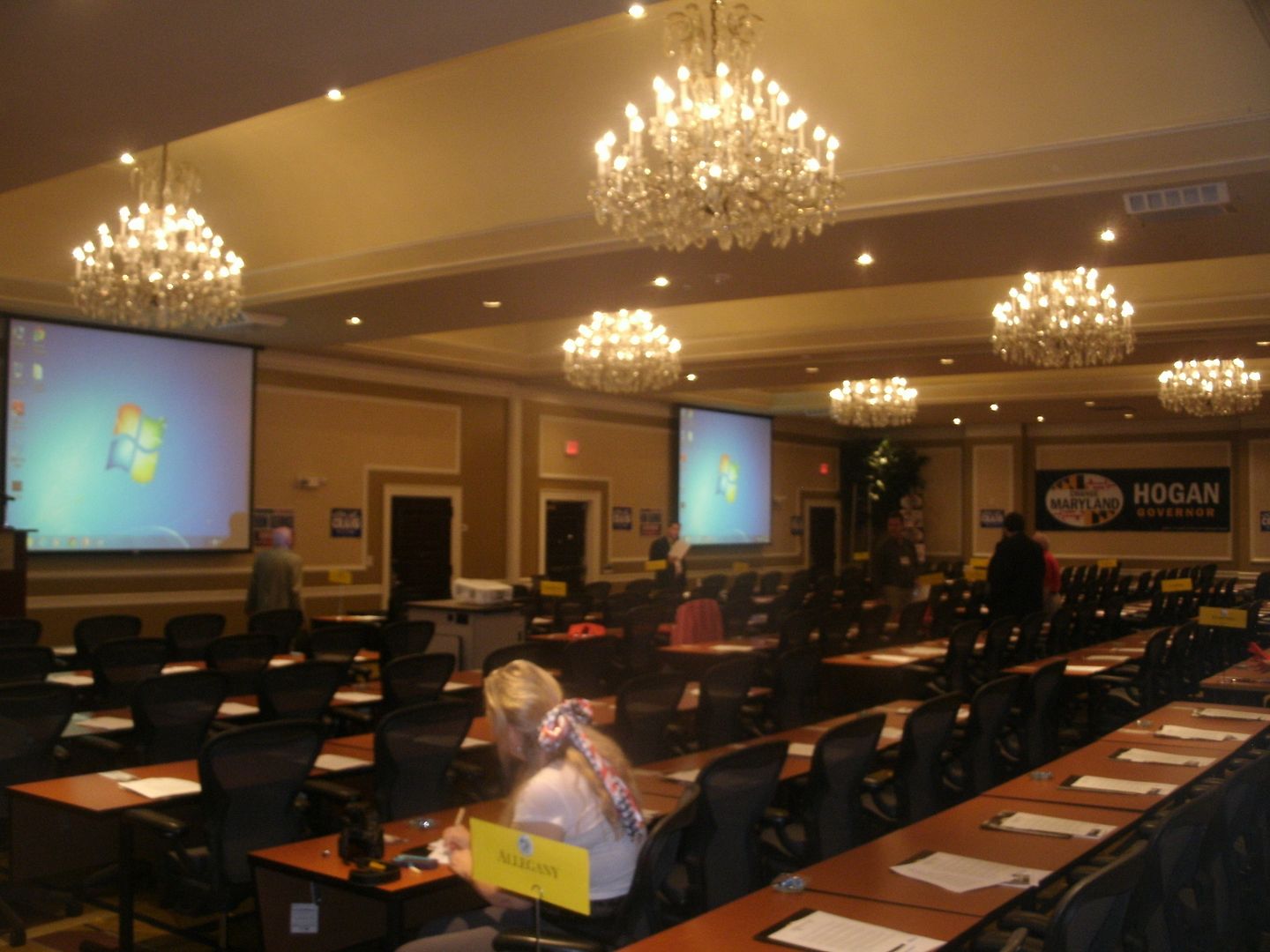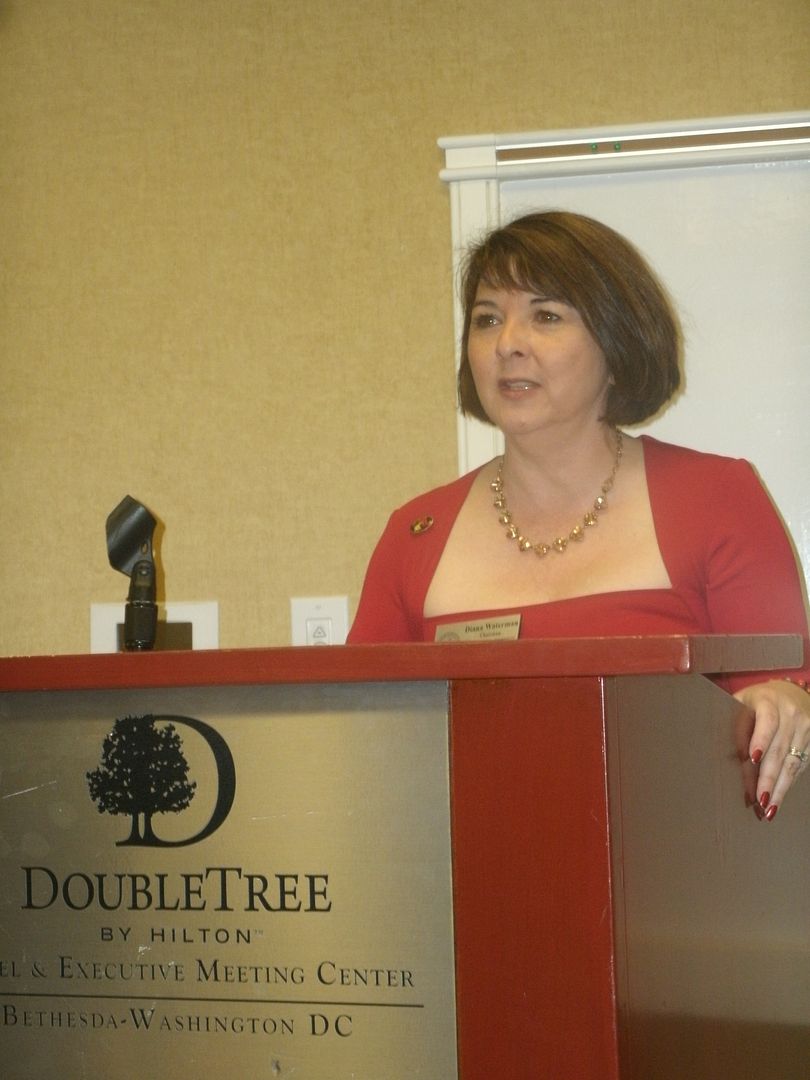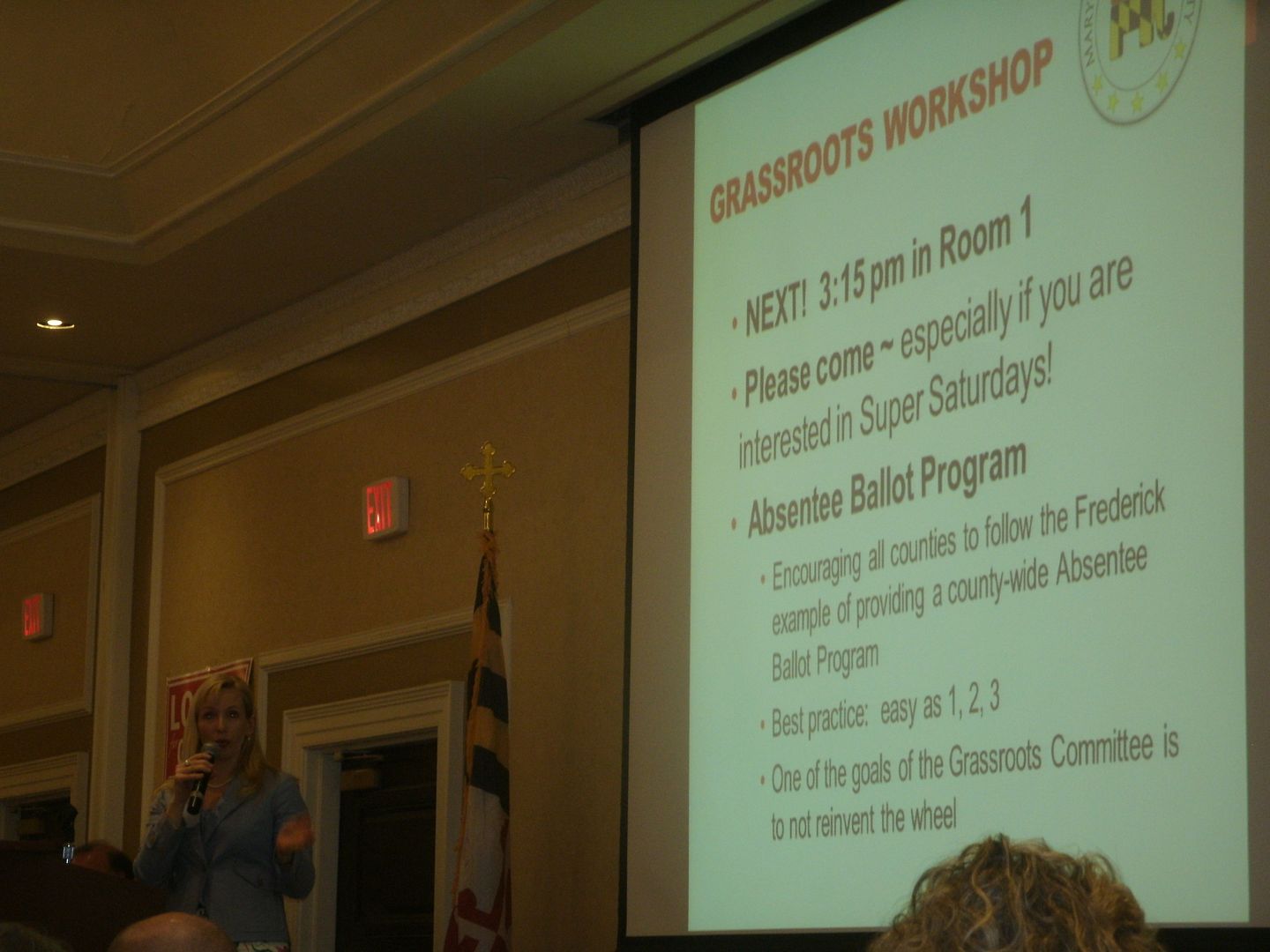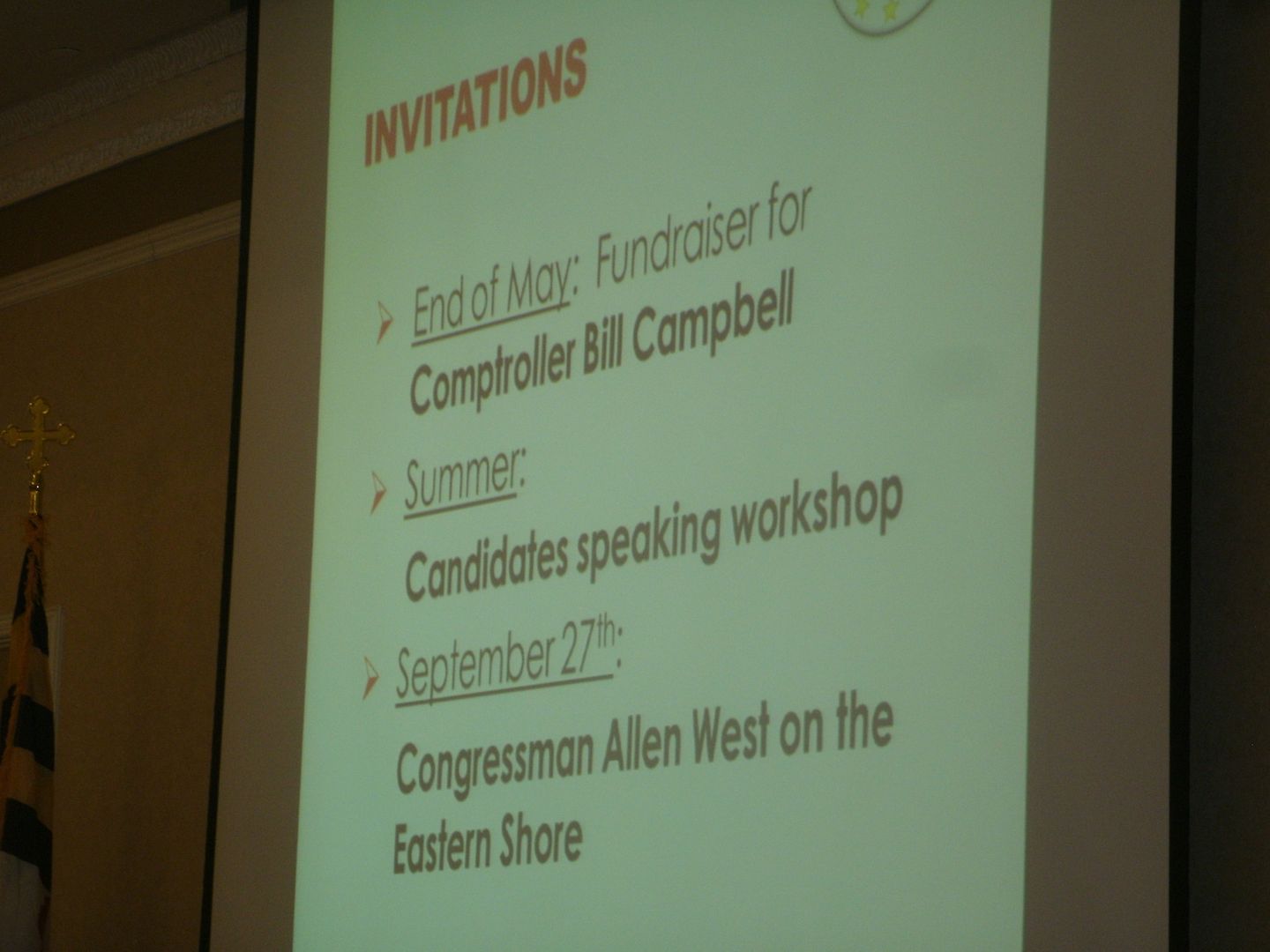This time around it will be fewer pictures and more text. It’s not like I haven’t done this for many years at the same venue. But you may recall I took a hiatus from party politics for awhile, meaning this was the first such event I’d attended in two years.
So I was greeted with mainly open arms, although many people thought I had already moved to Delaware. (Not quite yet.) Regardless, the feel of the event was such that I felt right at home – the only difference was that we were supposed to begin an hour earlier to accommodate our speaker. As it turned out, we got underway about 45 minutes late (or 15 minutes early by our “normal” schedule), so I who was there at 5:00 for a 6:00 dinner had plenty of time to commiserate and hear the band play.
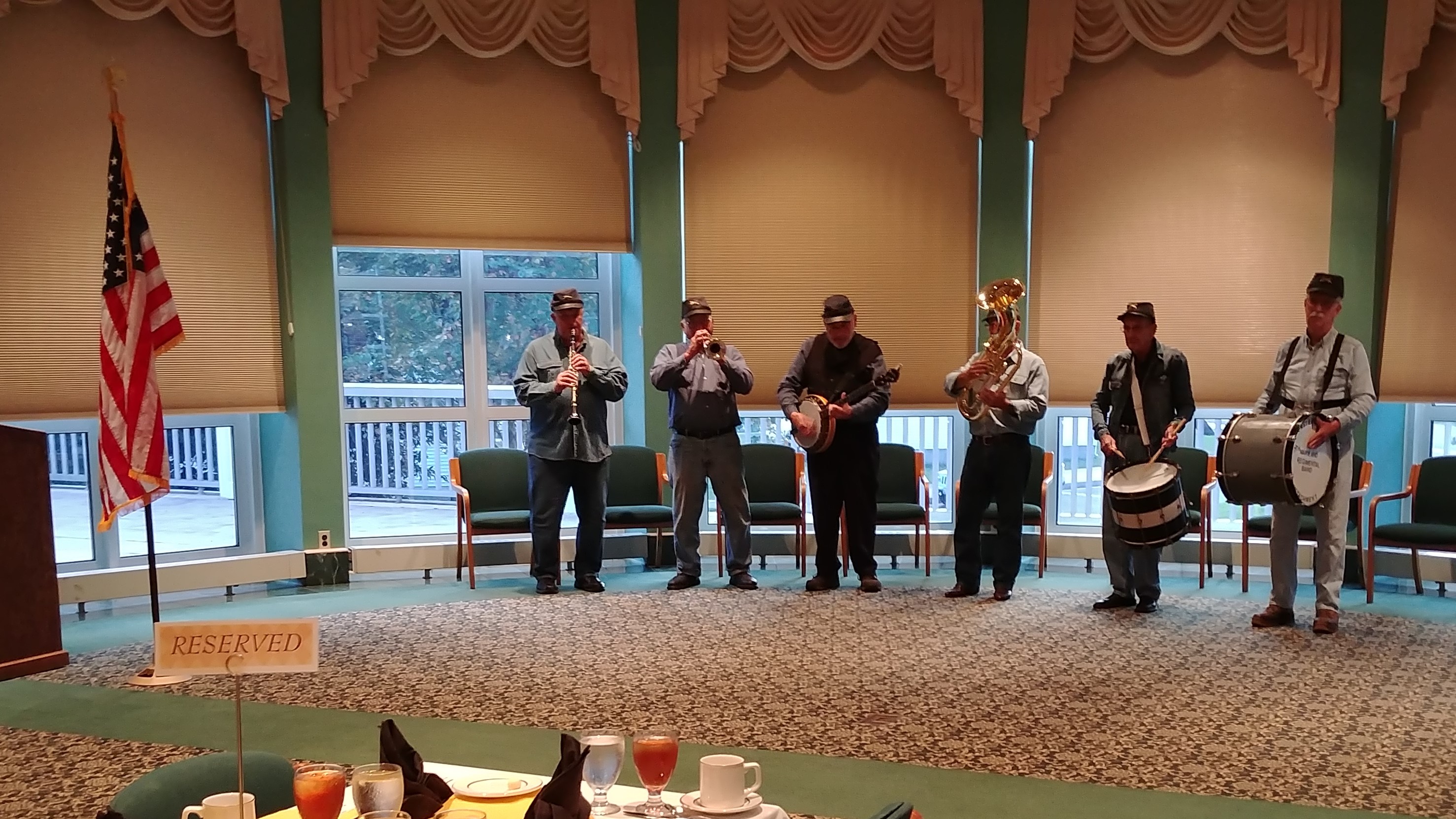
One of the new folks I got to meet was the lone statewide candidate to attend. She is definitely having fun on the campaign trail.
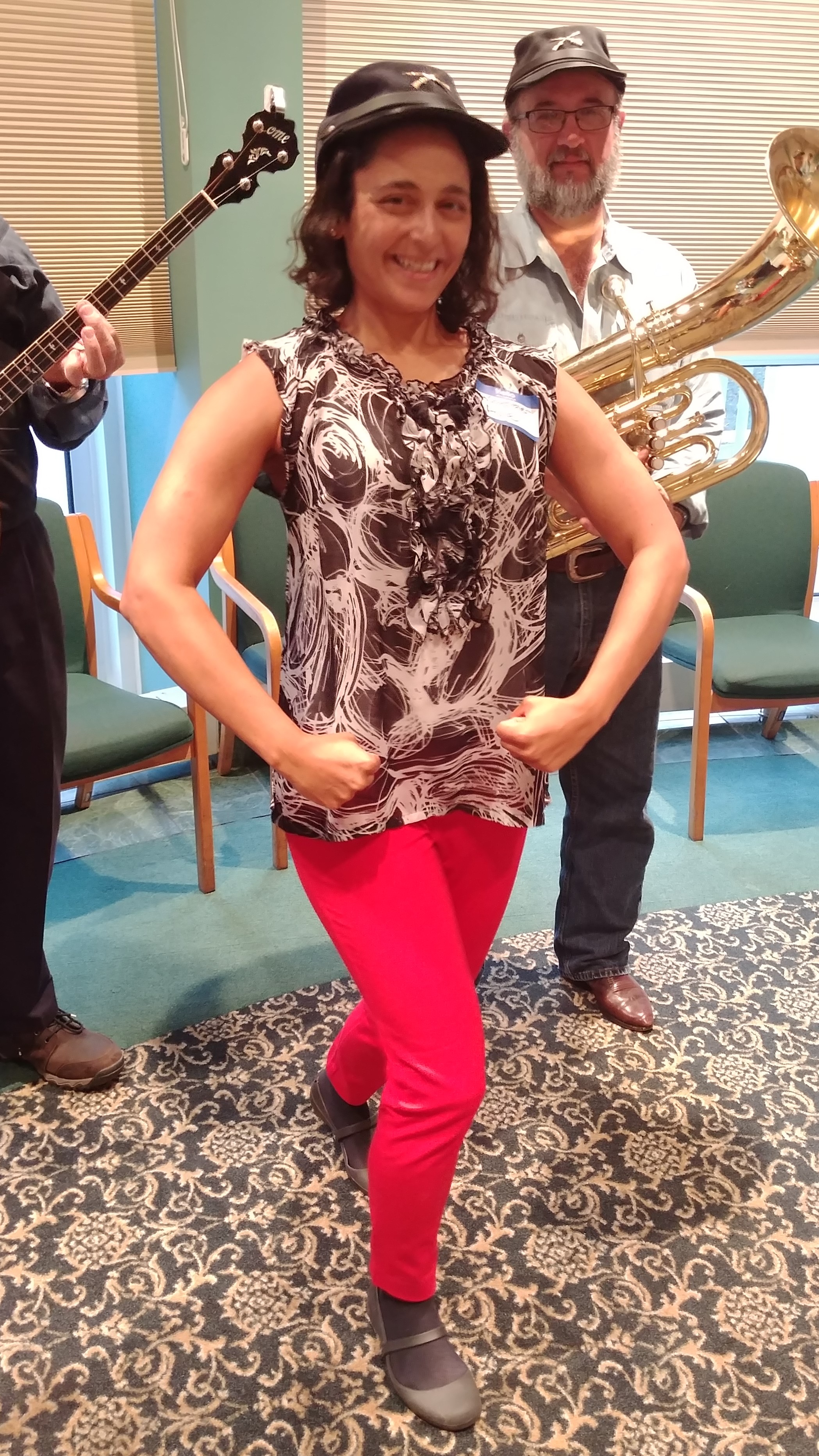
Angie Phukan (a.k.a. “MsComptroller”) is, as the tagline would suggest, running for the GOP nomination for Comptroller. To date she’s the only candidate to file against incumbent Democrat Peter Franchot, who likewise has filed. She hails from Ocean City, so she’s a statewide candidate in our backyard.
I had actually conversed online with her a few weeks back when she was trying to figure out her yard signs. I suggested simpler is better, and assured her last night she need not worry about separate signs for primary and general elections. “Your job right now is to build name recognition,” I told her.
Of course, most of our local contingent of folks were there as well. One I want to point out is Mary Beth Carozza, Delegate from District 38C. Here she’s between County Council member from District 5 Joe Holloway and his wife Faye. (Holloway is once again my Councilman since we moved.)
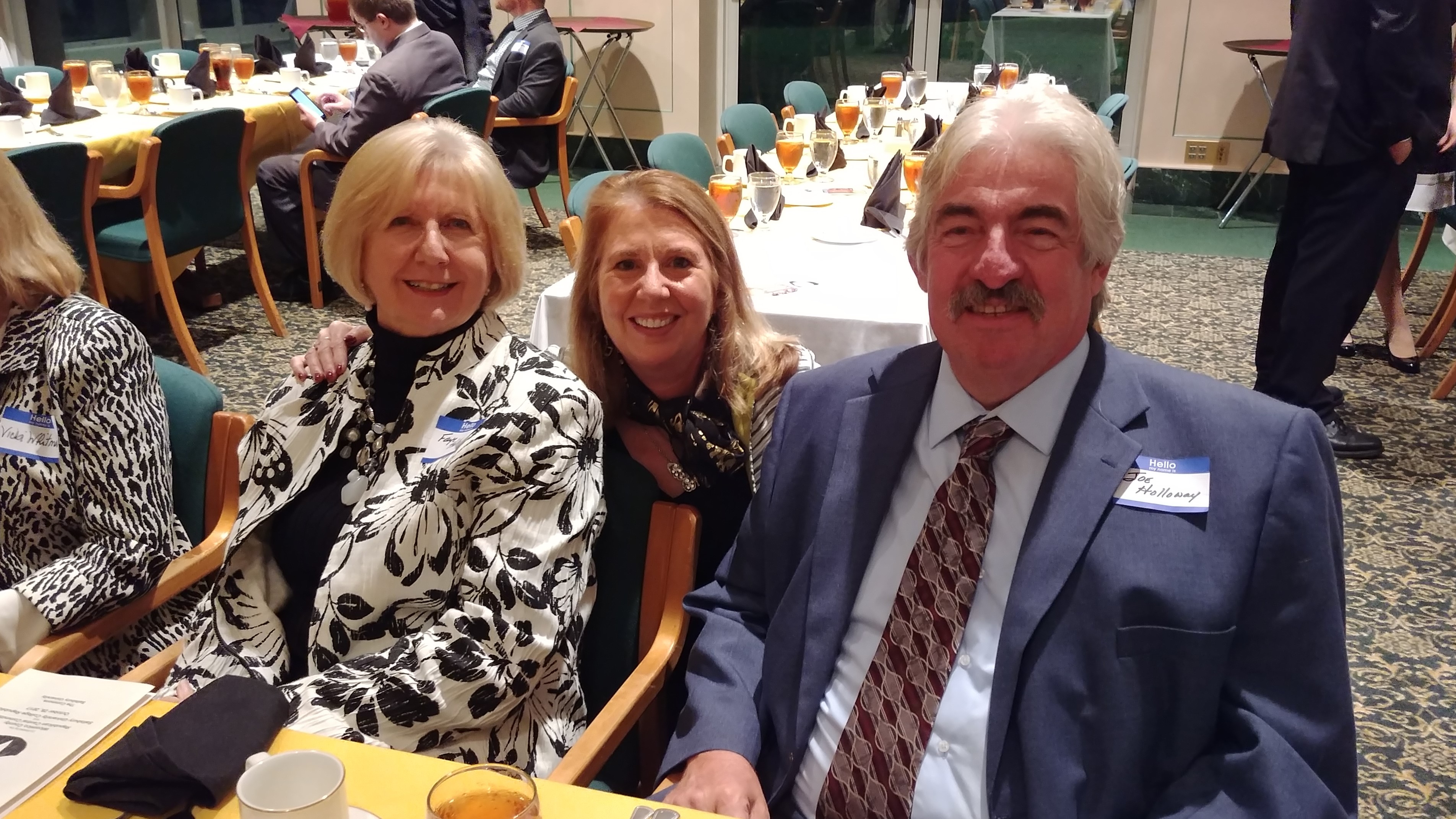
The reason Carozza is important to the story is she’s making a “special announcement” next month in Ocean City.

The speculation is rampant this will make formal what’s been rumored for awhile: notice how much Jim Mathias is on social media these days? If Mary Beth indeed decides to try for the promotion, she would join Democrat-turned-Republican Ed Tinus in the race, although Tinus could then decide to seek the open Delegate seat.
As always, we began with a visit from our 16th President and the event’s namesake.
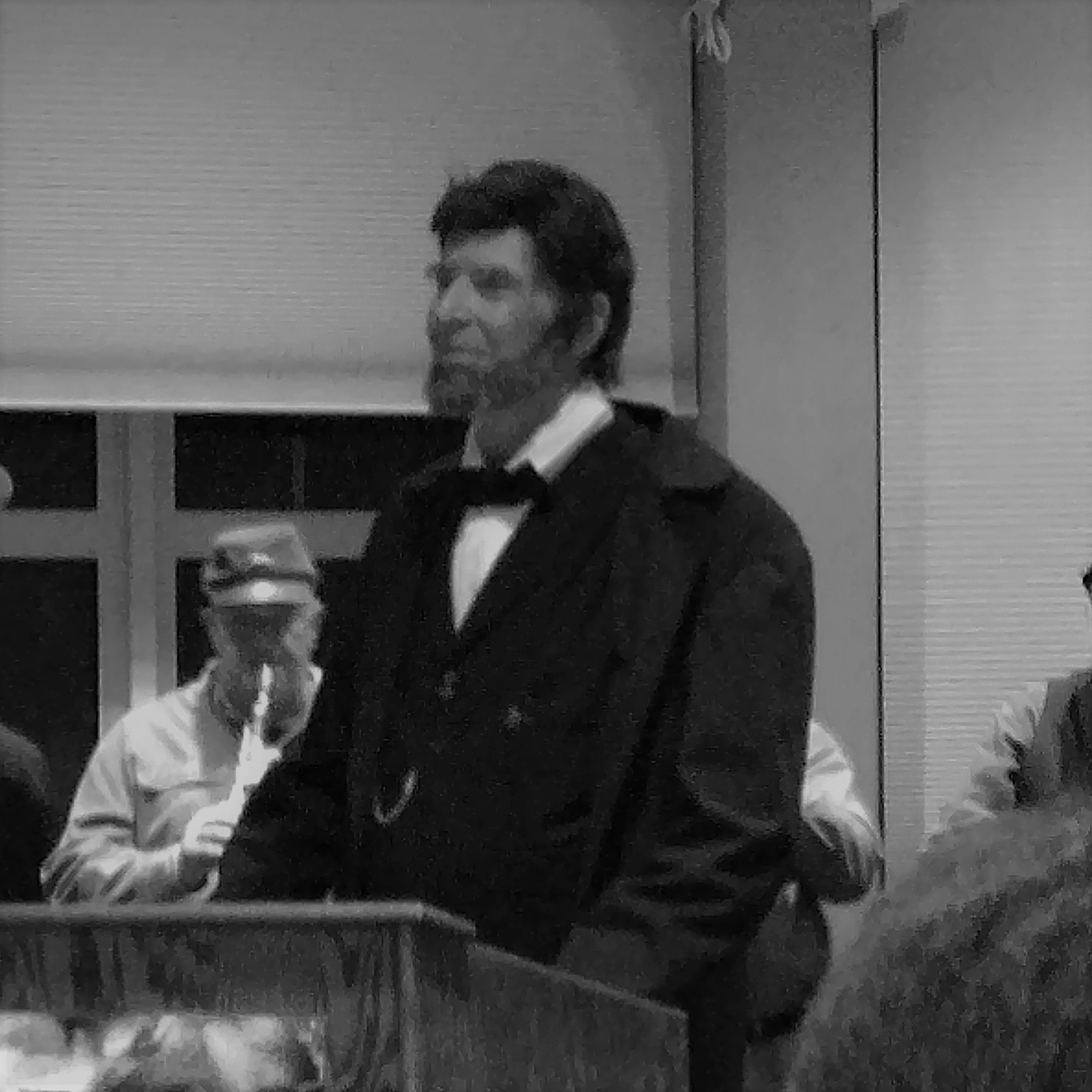
I had some fun with the photo since it demanded an oldtime look. As he always does, Lincoln waxed eloquent with tales from his life, this time focusing on the time he was a young man who studied voraciously to tackle new opportunities that came his way, such as surveying or winning his first elective office at the age of 25. (Oddly enough, the Whigs of the day had to contend with voters who were ineligible because they didn’t live in the district or weren’t yet citizens.) Observing today’s political landscape, he noted that there seemed to be no survey plan to drain the swamp.
As I was driving around to find a parking spot before the event, I spied a well-dressed man who seemed like he was looking for the door to get in. I thought it was David Bossie and it turned out I was right. He may be our Republican National Committeeman and entrenched as a confidant for President Trump, but he was still baffled by the setup of Salisbury University’s Guerrieri Hall.
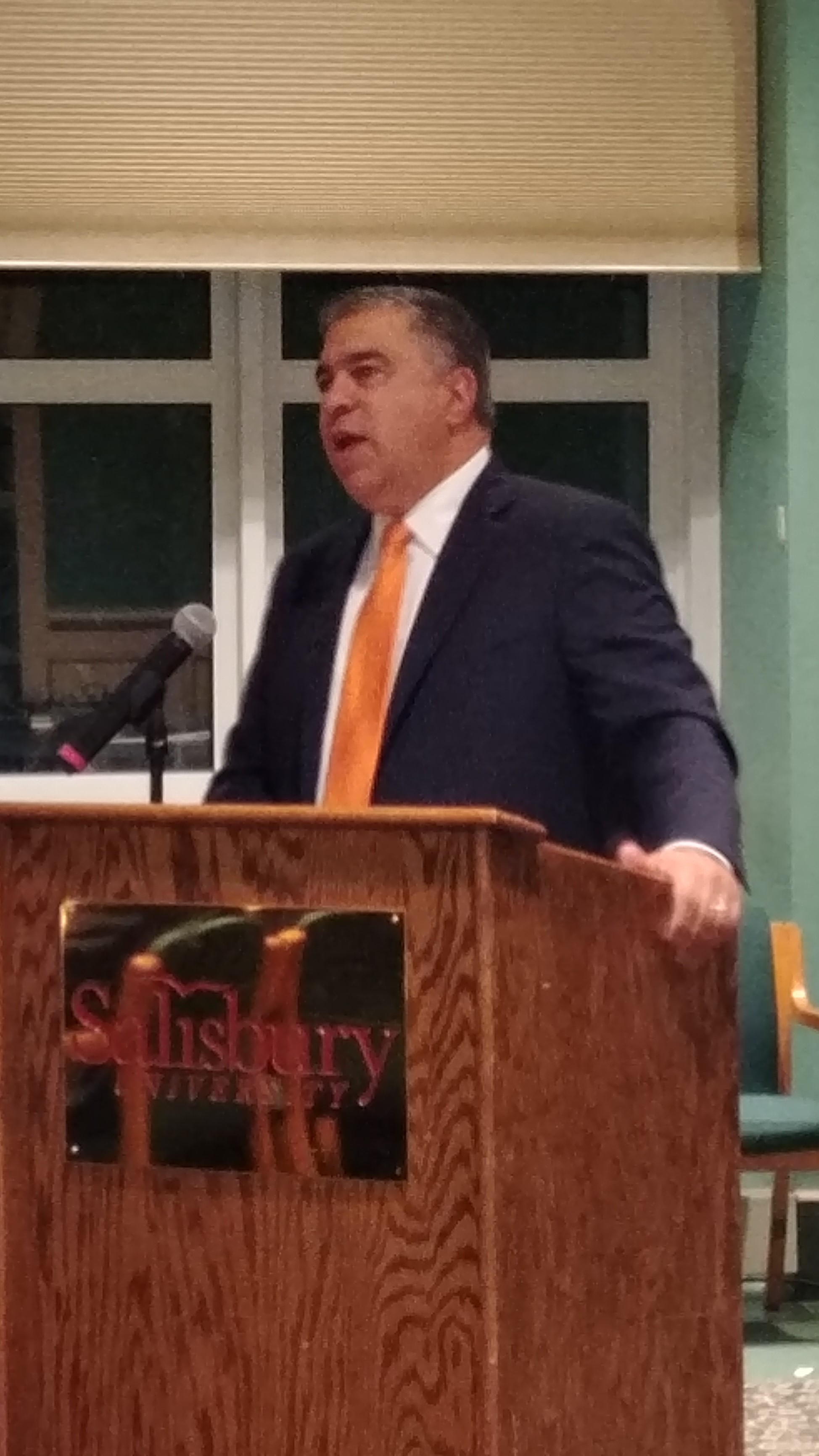
But when it was Bossie’s turn to speak, there was no confusion. First of all, he asked how many in the room thought a year ago that Donald Trump would win. When a fair number went up, he said “Liars,” adding “I didn’t raise my hand.”
“I’ll tell the President that he had a room full of people who knew he would win,” added Bossie. He only figured it out as he was feeding information to the soon-to-be President on Election Night.
David had met Trump several years earlier through a mutual friend who believed Trump would be willing to lend the use of his golf course for a charity event Bossie was organizing. The main reason for Bossie’s interest in that cause was his then-six month old son, who had several medical issues that piqued his interest in fighting against Obamacare in the belief it would damage our medical system that was aiding his son.
Bossie’s role in the campaign and eventual transition was “a humbling experience,” although for a time it greatly diminished when Paul Manafort was hired. Manafort “froze him out,” so when Trump “thankfully…(got) rid of Manafort” Bossie helped lead the comeback from a low point after the GOP convention.
So the day after Trump shocked the world, they realized there was no formal transition plan. In part, that was superstition from Trump, an avid sportsman who had the belief – like many athletes who compete regularly do – that considering the transition would be a departure from routine and would jinx his campaign. Shortly after the victory, though, David was selected as the Deputy Executive Director of the transition.
While this was going on, Bossie remained at the helm of Citizens United, which he described as “focused on the President’s agenda like a laser beam.” The problem with enacting it, continued David, was that our government was “dysfunctional and out of touch.” Since the House and Senate were elected on the same issues as Trump was, their reluctance to cooperate was an affront to President Trump. “He’s a pissed off dude, isn’t he?” said Bossie about the President. “Get something done and the temperature goes down,” he added, referring to the Senate and relations between them and Trump. If they do, there’s a “good opportunity to pick up Senate seats…really good math for us.” Bossie mentioned races in Ohio and Missouri as strong possibilities for pickups and welcomed the changes in Arizona and Tennessee with the retirements of Jeff Flake and Bob Corker, respectively.
(Interesting to note: the mentions of Flake, Corker, and John McCain drew boos and hisses from some in the crowd.)
We needed, though, to put aside the things of a year ago. Remember, “if Hillary Clinton wins, the nation as we know it is over,” said Bossie. But since Trump won, things have taken shape with our economy: the Dow is “out of its mind” and as far as regulations go, Trump promised to eliminate two for every new one. “Do you know how many he’s done?” Bossie asked, and someone in the crowd you may know well said, “Sixteen.”
“Who said sixteen?” he asked. “Showoff.” Indeed, the Trump administration is mowing down regulations at a frenetic pace.
But the economy is missing one thing: a “robust” tax reform package; one that Bossie described as “generational.”
“Shame on us if we don’t get it done,” Bossie said, and the sooner the better: if enacted by year’s end and made retroactive for 2017, the boost in the economy will kick in around next summer and make the 2018 election a pocketbook balloting. If done in the spring, the effects won’t be nearly as great, argued David.
While Bossie apologized in advance for not being able to stay too late, he did answer a few questions.
The first one required him to put on his National Committeeman hat, as he was asked “what can we do on the Eastern Shore?”
Our focus, said David, should be first on winning the needed five State Senate seats to sustain Governor Hogan’s vetoes. Of course, that also meant we had to turn out for Hogan as we did last time so he could defeat the “worst group of Democrats” in the country.
He was less optimistic when asked about what we could do about Ben Cardin. “There’s lost causes, then there’s lost causes,” said Bossie. That may be news to Sam Faddis, who is the only Republican with an FEC account in that race so far. (No one has formally filed, save three Democrats not named Cardin who are hoping the incumbent retires or keels over.)
Someone else asked whether GOP money was going to Donald Trump. Their investment is “behind the scenes” right now, assured Bossie, although Trump already has a 2020 re-election account as well. The RNC is “stockpiling” money with a large advantage in fundraising over the Democrats at the moment.
Turning to foreign affairs, a question was asked about our relationship with China.
Trump was focusing on the Chinese president, David said. “No one wants war,” and by dealing with China – which is the main trading partner of North Korea – Trump is dealing with an entity that could “suffocate” North Korea if they chose. It’s a combination of tough talk and diplomacy, he added.
Finally, it was asked about the governors not supporting Trump. Bossie argued that their agenda was better off with Republican governors whether they agreed with President Trump on everything or not. And even though our governor didn’t support the Trump bid, it was “vital” he be re-elected anyway, concluded Bossie.
With that, he was off to see his family before an early morning gig on Fox News, so the conclusion of the event was the introduction of a number of elected officials, club officers, and 2018 candidates, along with the drawing of raffles from both the Wicomico County Republican Club and the College Republicans. As it turned out both grand prizes were donated back to their respective organizations, so the WCRC can once again give away a $1,000 Dick’s Sporting Goods gift card and the College Republicans netted $280. Wicomico County GOP Chair Mark McIver also announced that there were 130 people in attendance, making this a successful event that grossed better than $8,000.
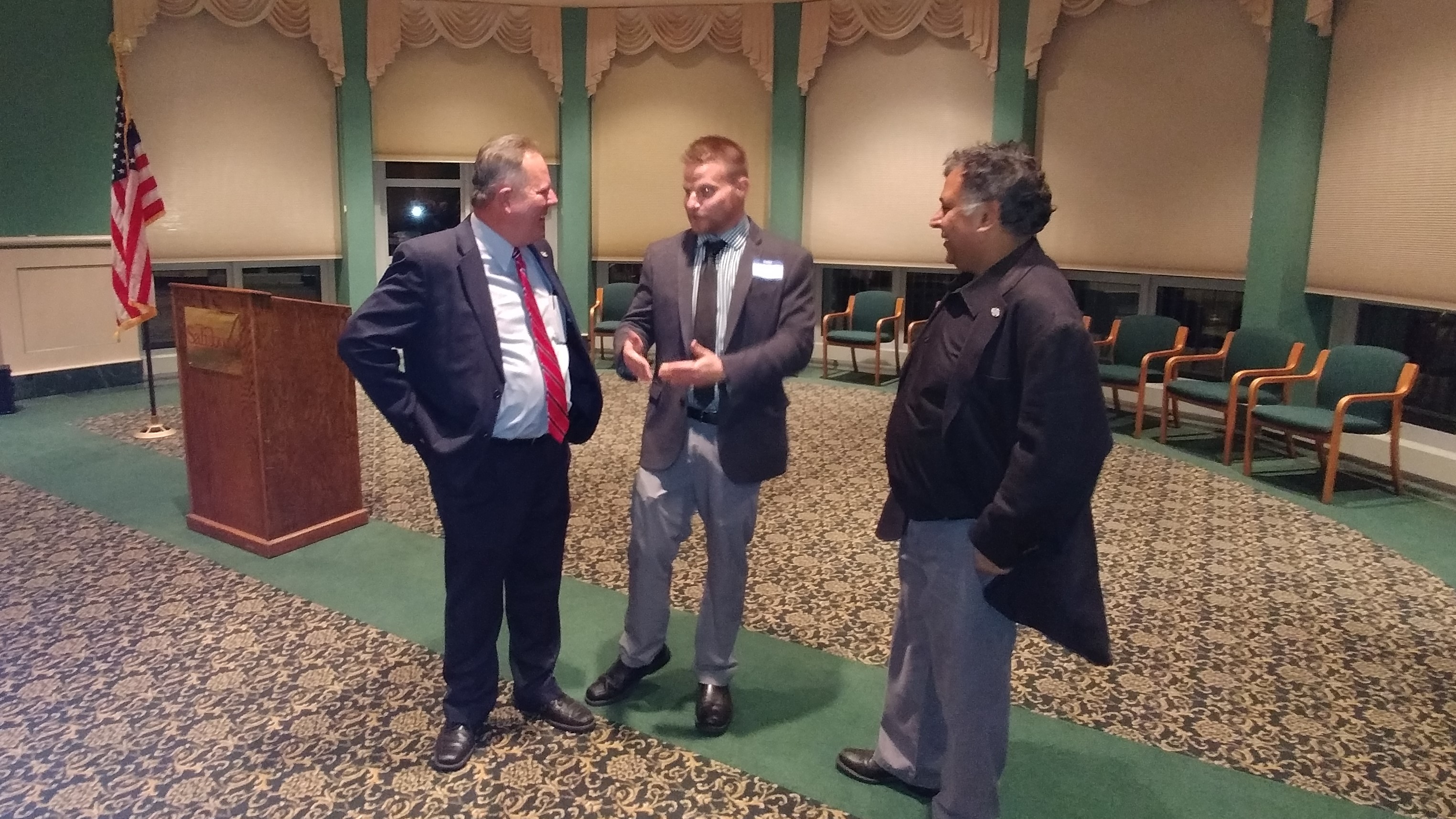
Just like in the beginning, there are people who stay around and gab the night away. In this case, it’s Delegate Charles Otto (left) with Joe Schanno of the Department of Natural Resources (center) and Dwight Patel (right), who annually makes the trip from Montgomery County to show his support. We finally cleared out about 9:30, although there was an impromptu afterparty offsite some chose to enjoy.
It was nice to be remembered, and as I had pointed out to me by County Councilman Marc Kilmer, now that I’m a “free agent” I can pick and choose my events. Trust me, I’m still on the mailing lists.
But writing this was like riding a bicycle – you don’t forget how to do it even after awhile away. It was fun.


